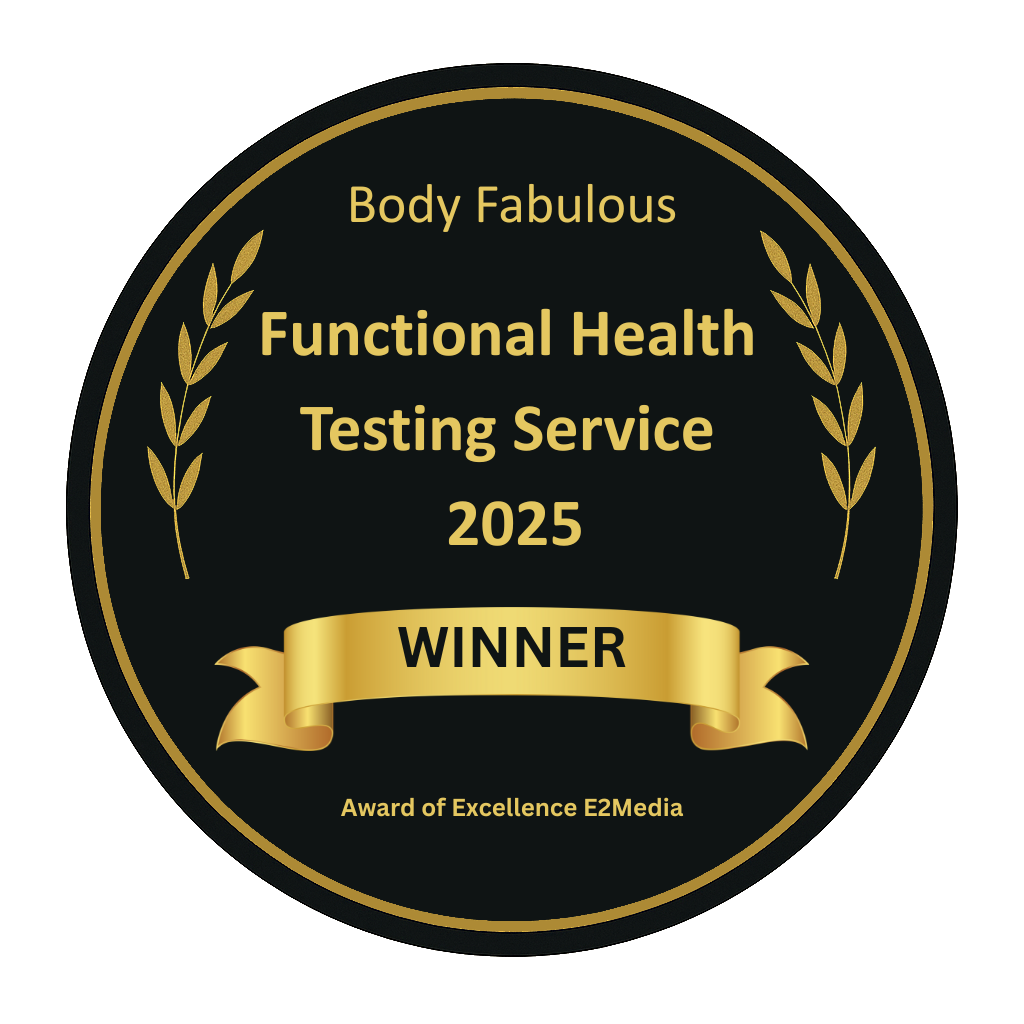Perimenopause - Everything You Need To Know
/Perimenopause is often a topic that women avoid, partly because we live in a society that doesn’t always support or understand this phase of life and partly because there is a misconception that there is nothing we can do to make this shift more seamless - we have no choice but to buckle up and deal with the hormonal hand we are dealt. It can feel like a confusing, isolating and challenging time, from both a physical and mental perspective. But it doesn’t have to be this way… With the right knowledge, preparation and lifestyle adjustments, you can navigate this transition with more ease, confidence and vitality. If you take anything from this article, it’s that there is so much we can do as women to prepare our bodies and minds for these shifts, empowering us to embrace the changes with greater ease and resilience.
First Things First: What Is Perimenopause?
Perimenopause is the transitional phase leading up to menopause, which is officially defined as 12 months without a period. This phase can last anywhere from a few months to 10-15 years, with changes often beginning in a woman’s early 40s, though for some, it can start as early as their 30s. Perimenopause marks the body’s preparation for menopause and is marked by hormonal fluctuations, particularly oestrogen and progesterone.
These hormonal shifts can lead to a range of physical, emotional and cognitive changes, making this transition challenging for many women. Symptoms of perimenopause can vary widely and may include irregular periods, hot flashes, sleep disturbances, mood swings, brain fog, anxiety, vaginal dryness, very heavy periods and changes in libido. While these changes are a natural part of the process, it's important to remember that with the right support and strategies, you can manage and navigate this transition with more ease and balance.
Hormones at the Helm: What’s Really Happening?
Hormones do far more than just regulate reproductive health - they’re the silent orchestrators of your metabolism, mood, energy and even skin health. As your ovaries start producing less oestrogen, progesterone and testosterone, the entire endocrine system undergoes changes that can affect your hormonal balance. These shifts can lead to a wide range of symptoms, from mild to more intense, and can show up in unique ways for each woman.
For some women, perimenopause can be a period of relative ease, with only minor disruptions to their daily lives. For others, the hormonal fluctuations can lead to significant symptoms, including weight gain, changes in skin elasticity, irritability, anxiety and sleep disturbances. It’s easy to see why many women find themselves feeling out of control and frustrated, especially when awareness and support is so lacking, but it’s important to recognise that there are ways to manage these shifts and reduce their impact.
How to Prepare For and Manage Perimenopause
A Holistic Approach: Embrace a Hormone-Friendly Lifestyle
The good news is that many of the most common symptoms of perimenopause can be alleviated by adopting a healthy, hormone-friendly lifestyle throughout your life, especially in the years leading up to perimenopause. This doesn’t just mean focusing on what you eat but also on your mental health, sleep, movement and stress management - it’s never too late to start but there’s no time like the present. By taking a holistic approach to your health, you can minimise the impact of hormonal fluctuations and better navigate this transition.
Diet and Nutrition Matter
What you eat during perimenopause plays a pivotal role in how you feel. Prioritising foods that reduce inflammation, balance blood sugar and support liver detoxification (to support healthy clearance of oestrogen from the body) can help ease common symptoms like fatigue, brain fog, and mood swings. Avoid fad diets that eliminate entire food groups or fixate on one nutrient as they often create nutrient imbalances that can worsen symptoms. Instead, focus on whole, nutrient-dense foods as close to their natural state as possible. Limit processed foods and refined sugars and include healthy fats like avocado, nuts, seeds and oily fish. This helps to promote balanced blood sugar and healthy insulin responses, both of which are crucial for hormonal regulation. Intermittent fasting may work well for some women, offering benefits like improved insulin sensitivity, but isn’t appropriate for everyone.
Manage Stress and Support Mental Health
Perimenopause often intensifies stress and anxiety while simultaneously disrupting the HPA axis (the body’s stress response system). This means stress levels may rise just as your capacity to cope diminishes. Elevated cortisol levels, triggered by chronic stress, can worsen symptoms such as hot flashes, sleep disturbances and mood swings. To counteract these effects, incorporate daily stress-reducing practices that regulate your nervous system. Activities like meditation, yoga and spending time in nature can help calm the mind and body. Cultivating gratitude, creating a tranquil home environment and prioritising self-care rituals are simple yet powerful tools for emotional wellbeing. Quality sleep is equally vital. Aim for 7–9 hours per night, as sleep is essential for hormone regulation. While perimenopausal changes can disrupt sleep, optimising sleep hygiene by maintaining a consistent bedtime, limiting screen time before bed and creating a relaxing nighttime routine, can make a big difference.
Functional Testing: Gain Deeper Insights Into Your Hormonal Health
Functional testing offers a more precise understanding of your hormonal balance during perimenopause, going beyond traditional tests to evaluate hormone metabolites, metabolic pathways and cortisol patterns. Tests like the DUTCH Complete (Adrenal And Sex Hormone) - Dried Urine Test for Men & Women provide deeper insights into how your hormones are interacting, helping identify imbalances that may be contributing to symptoms. This information can be used to guide more effective interventions, whether for lifestyle changes, diet, supplements or monitoring hormone replacement therapy (HRT).
Supporting Your Body with Supplements During Perimenopause
Certain supplements can offer valuable support as you navigate the natural hormonal transitions of perimenopause, helping to maintain balance and promote overall wellbeing.
Adaptogenic Herbs
Adaptogens are herbs known for their ability to help the body adapt to stress and maintain homeostasis (balance). Some particularly noteworthy adaptogens include:
Maca Root: Known for supporting hormone balance, especially in women experiencing hormonal shifts.
Ashwagandha: Helps reduce cortisol levels, supports relaxation, and can improve sleep quality.
Rhodiola: Boosts energy levels and combats fatigue, especially during times of stress.
Lion’s Mane: A medicinal mushroom that supports cognitive health and may alleviate brain fog, a common symptom during hormonal fluctuations.
Anti-inflammatory and Antioxidant Ingredients
In addition to adaptogens, certain anti-inflammatory and antioxidant-rich ingredients can also be beneficial:
Turmeric: Known for its powerful anti-inflammatory properties and overall support for wellbeing.
Green Tea Extract: Offers antioxidants that can help reduce inflammation and support general health.
Essential Nutrients
Several vitamins and minerals play crucial roles in maintaining health during perimenopause:
Magnesium: Aids relaxation, muscle function, and improves sleep quality.
Vitamin D: Vital for bone health, immune function, and mood regulation.
Omega-3: Helps reduce inflammation, support cardiovascular health, and improve brain function.
Calcium: Essential for maintaining bone density, particularly as oestrogen levels decline. Before supplementing consider a bone profile test to assess calcium status here - Vitamin Blood Test
B Vitamins: Support energy production, cognitive function, and mood stability.
Probiotics: Improve gut health, which may indirectly support hormone metabolism and immune function.
Speak with one of our experts for guidance - Book Advice Call
Incorporating these supplements can help support your body through the hormonal changes of perimenopause, improve overall health and ease common symptoms. However, individual needs vary, so it’s important to consult with one of our experts to create a personalised plan that’s safe and effective for your unique circumstances.
Physical Activity: Movement is Key
Exercise is vital during perimenopause, offering benefits that extend far beyond weight management. Regular movement can support hormonal balance, protect against bone density loss and preserve muscle mass. These are key areas that may need support as oestrogen levels decline. Strength training and weight-bearing exercises are especially beneficial as they help counteract the natural reduction in bone density and muscle that occurs during this time, reducing the risk of osteoporosis and age-related muscle loss (sarcopenia). Cardiovascular exercises like walking, hiking and swimming improve cardiovascular function and boost metabolism, both of which can be affected by hormonal shifts. Additionally, consistent movement supports insulin sensitivity, helping to stabilise blood sugar levels, which is a key factor in regulating overall hormonal health. Mindful movement practices such as yoga, Pilates and tai chi offer another layer of support by reducing stress, lowering cortisol levels and improving flexibility and balance. These activities also promote mental clarity and relaxation, making them excellent for addressing both the physical and emotional challenges of perimenopause.
Understand the Emotional Side of Perimenopause
Perimenopause isn’t just a physical transition, it’s an emotional one as well. The hormonal shifts during this time can lead to mood swings, irritability and even depression - often . Acknowledging and accepting the emotional side of perimenopause is key to navigating it with compassion. Take time to reflect on your needs, prioritise your mental health and seek support from loved ones or a therapist if necessary. Connecting with others who are going through similar experiences can also help alleviate feelings of isolation.
Key Takeaways
Perimenopause is a natural phase every woman experiences, though it can sometimes feel overwhelming. By understanding the hormonal changes in your body and adopting a hormone-friendly lifestyle, you can support both your physical and emotional wellbeing during this transition. With the right knowledge, preparation and support, perimenopause doesn't have to be marked by discomfort or disruption, it can be an opportunity for growth, self-care and empowerment. While symptoms may vary, a proactive approach can ease the transition and help you thrive. Embrace perimenopause with mindfulness, patience and a commitment to your health - the investment you make in your body today will benefit both you and your future self.













